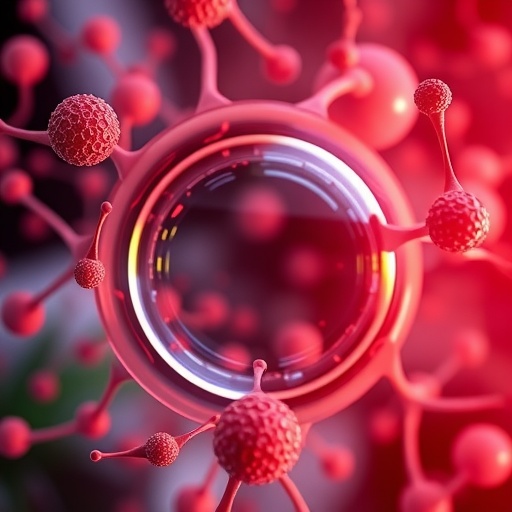The human microbiome has emerged as a pivotal area of scientific exploration, reshaping our understanding of health and disease. This complex community of trillions of microorganisms—bacteria, fungi, viruses, and other microscopic entities—resides in the gut, on the skin, and throughout the body, profoundly influencing physiological processes and overall well-being. The past decade has witnessed an upheaval in microbiome research, transitioning from a narrow focus on pathogenic microbes to appreciating the symbiotic roles these organisms play in human biology.
Dr. Brett Finlay, a distinguished microbiologist at the University of British Columbia, has been at the forefront of unraveling the multifaceted roles of the microbiome. His interdisciplinary approach illuminates how microbial diversity within an individual constitutes a reflection of health rather than a source of uniformity. Unlike simplistic notions of a “perfect” microbiome, the current scientific consensus underscores that a beneficial microbiome is characterized by taxonomic diversity and functional redundancy, which together bolster systemic resilience against inflammation and disease.
One of the transformative insights from microbiome research is its malleability. Unlike the static nature of human genetics, microbiomes are dynamic ecosystems, responsive to environmental and lifestyle factors. Dietary modifications can precipitate measurable shifts in the microbial community within days. Proven nutritional frameworks, including the Mediterranean and DASH diets, emphasize the consumption of plant-based foods rich in fiber, nuts, olive oil, and fish, while minimizing red meat, refined sugars, and processed grains. Such diets promote the flourishing of commensal microbes that generate beneficial metabolites like short-chain fatty acids, which mitigate gut inflammation and enhance epithelial barrier integrity.
The incorporation of fermented foods further modulates microbiome composition by introducing probiotic strains that may temporarily colonize the gut and interact with the existing microbial community. However, Dr. Finlay cautions against relying on probiotic supplements indiscriminately, highlighting that most available commercial formulations lack robust clinical evidence for efficacy beyond specific medical indications. Exercise emerges as another potent modulator, where even brief daily physical activity has been shown to enhance microbial diversity and function, which in turn supports metabolic health and longevity.
An often-overlooked aspect of microbiome science pertains to skin health. The skin microbiome acts as a frontline defense against pathogenic invasion and helps regulate inflammatory responses. Dr. Finlay advocates for gentle skin hygiene practices—namely, the use of mild soap and water and reduced frequency of washing—to preserve beneficial skin microbes. Overzealous cleansing can disrupt this delicate microbial equilibrium, facilitating the growth of harmful organisms that contribute to infections and inflammatory skin conditions.
The gut-brain axis exemplifies one of the most exciting frontiers in microbiome research. Communication between the gastrointestinal tract and the central nervous system occurs via multiple mechanisms, including microbial metabolites, immune signaling, neural pathways, and hormonal axes. Perturbations in this crosstalk have been implicated in neuropsychiatric disorders such as anxiety and depression and neurodegenerative diseases including Alzheimer’s and Parkinson’s. Dr. Finlay’s recent investigations reveal that adherence to the MIND diet—a nutritionally optimized fusion of the Mediterranean and DASH diets—can delay the onset of Parkinson’s disease by nearly two decades, potentially by reconfiguring the gut microbial milieu in ways that modulate neuroinflammation and neuronal survival.
The interplay between the microbiome and immune system further extends to infectious diseases and oncology. In the context of COVID-19, emerging evidence suggests that the pre-existing microbial ecosystem influences an individual’s susceptibility to severe disease and the likelihood of developing prolonged post-infectious sequelae known as long COVID. By shaping immune responsiveness and systemic inflammation, the microbiome acts as a critical determinant of clinical outcomes.
Cancer immunotherapy, specifically checkpoint inhibitor treatments, has also revealed dependencies on the patient’s microbiome composition. Certain microbial profiles correlate with enhanced therapeutic efficacy, providing a rationale for microbiome-targeted adjunctive therapies to optimize cancer treatment responses. Nonetheless, the intricate mechanistic links remain an active area of research, underscoring the complexity of host-microbe interactions in oncogenesis and immune modulation.
Regarding microbiome-targeted interventions, Dr. Finlay strongly advises skepticism about the blanket use of probiotics and commercial supplements. He recommends basing strategies on evidence-driven lifestyle interventions—principally diet and exercise—as well as reducing processed foods and stress, improving sleep quality, and cultivating social support networks. These factors collectively foster a robust endogenous microbiome that supports systemic health.
Fecal microbiota transplantation (FMT), a procedure involving the transfer of stool from a healthy donor to a recipient, has demonstrated remarkable success in treating refractory Clostridioides difficile infections. However, Dr. Finlay emphasizes that FMT is a sophisticated medical procedure necessitating stringent donor screening and clinical oversight to prevent serious complications such as sepsis. Attempts at DIY fecal transfers, often found in online videos, pose considerable risks and are unequivocally discouraged.
The narrative surrounding the human microbiome is rapidly evolving, bridging disciplines from nutrition and immunology to neurology and dermatology. This paradigm shift heralds a future where individualized microbial management complements traditional medical interventions and preventive strategies. As research continues to decipher the complexities of these invisible ecosystems, awareness and evidence-based guidance remain crucial to harness the microbiome’s full potential for health and longevity.
Subject of Research: Human microbiome and its impacts on health and disease
Article Title: The Microbiome Master Key: Unlocking the Link Between Microbes and Human Health
News Publication Date: [Not specified in the source article]
Web References:
– https://probioticchart.ca
– https://my.clevelandclinic.org/health/articles/16037-mediterranean-diet
– https://www.mayoclinic.org/healthy-lifestyle/nutrition-and-healthy-eating/in-depth/dash-diet/art-20048456
– https://movementdisorders.onlinelibrary.wiley.com/doi/10.1002/mds.28464
References: The Microbiome Master Key, Brett Finlay & Jessica Finlay, Douglas & McIntyre Publishers
Image Credits: [Not provided]
Keywords: Human gut microbiota, microbiome, probiotics, microorganisms, neurodegenerative diseases, Alzheimer’s disease, Parkinson’s disease, immune system, microbiota, nutrition, microbiome and brain health, exercise and microbiome, COVID-19 microbiome connection
Tags: dietary impacts on microbiomeDr. Brett Finlay microbiome researchdynamic nature of microbiomesfunctional redundancy in microbiomesgut microbiome diversityinterdisciplinary microbiome studiesmicrobiome and disease preventionmicrobiome and lifelong healthnutritional frameworks for gut healthsymbiotic roles of microorganismssystemic resilience against inflammation



